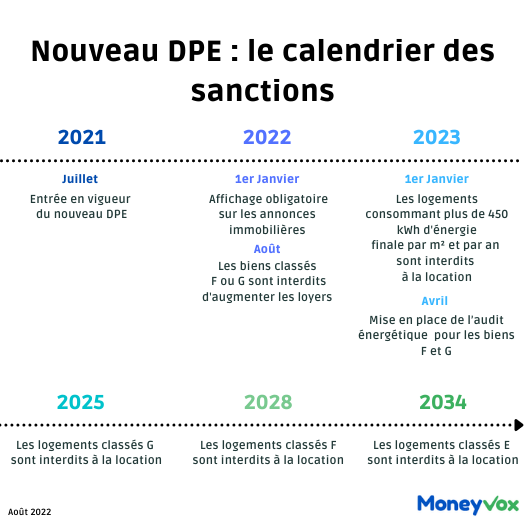Seven out of 10 energy performance diagnoses would be questionable according to the specialist company HelloWatt. For the same house, the five professionals do not achieve the same result, fumes from his side of 60 million consumers. How to guarantee the reliability of these documents with serious consequences and considered essential by buyers?
According to a YouGov study carried out for MoneyVox in July 2023, energy performance diagnostics (EPDs) and new energy audits are recognized as essential documents when buying a property. Specifically, more than 8 out of 10 buyers attach great importance to it. However, there would be reason to doubt their reliability despite a cost of around 150 euros for the first and around 800 euros for the second.
A rate that already raises the first questions. The display of prices clearly leaves something to be desired: Whether at the reception of their establishment or on an online platform, real estate diagnosticians do not correctly inform consumers about the price of services. The price list for the service is unclear, even incomplete given the multiple elements involved in the calculation of the price (nature of the diagnosis, surface area of the property, number of rooms, type of transaction, etc.), regrets the Fraud Control in a September 2022 survey.
Of the 312 establishments targeted by the DGCCRF according to the complaints received, for a total of 7,500 diagnosticians throughout the territory, 72% presented an anomaly!
71% of DPEs are incorrect
But that’s not all. When the sanctions against thermal sieves began to fall, prohibiting the owners concerned from raising the rent or renting out their property, Hello Watt, which offers solutions to optimize the energy consumption of housing, estimated that 71% of DPEs were not correct, that is to say that they did not correspond to the consumption of the dwelling in kWh per m2 and per year. We must put housing at the heart of the rating and not let a few players pull everyone down, said the company’s spokesman, Bastien Piot, with MoneyVox.
Among the homes with an energy label and listed in the ADEME database, we have identified 221 that use the Hello Watt application. For these accommodations, we therefore have their actual consumption, and their area. We can thus match their actual consumption/m2 with their energy label, and therefore with their estimated consumption/m2, he continues. In a third of cases, the rating gap is huge: an E label instead of B or C. Above all, a thermal sieve can thus be well rated, unlike a well-insulated apartment which would see its rating plummet without explanation.
The main fault of the DPE is that it is cold
The DPE assesses the current energy performance based on the invoices. For its part, the energy audit studies the structure of the building, the quality of the insulation and the equipment of the accommodation before proposing areas for improvement with figures. To meet the objective, the person who carries out the audit must be more qualified, believes Baudouin De La Varende, the co-founder of Ithaque, a company which offers to support households in their renovation projects and employment of thermal engineers. The main fault of the ECD is that it is cold, it does not take into account the specificities of the place and the household that lives there.
While waiting for the energy audit to prove its method and reassure customers, HelloWatt is not alone in criticizing the energy reviews of French homes.

Samuel AUFFRAY
After studying political science at Paris 2 and journalism at the CFJ, Samuel Auffray worked for L’Obs in the field of… Read more
MoneyVox / SA with Romain Designolle / August 2023
